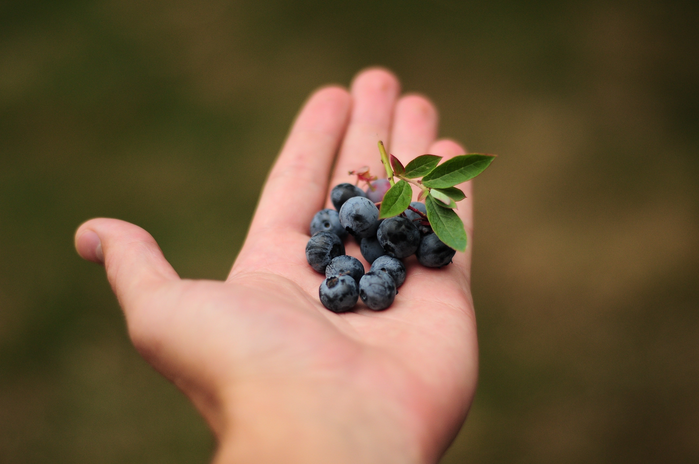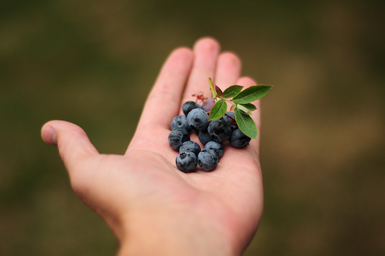My journey toward vegetarianism began when I was in grade 10. I was tasked with writing a research paper for my English class and picked animal sentience and animal rights from the given list of topics. In the process of writing my paper, I learned that animals are highly intelligent creatures with rich emotional lives. I also learned that animal agriculture emits a significant amount of greenhouse gases and that it is therefore a major contributor to global warming and climate change. Knowing this, it became ethically unconscionable for me to continue eating meat. It took me a year before I actually began my transition towards vegetarianism (I’m human after all), but I can now proudly say that I’ve been vegetarian for almost 4 years.
As such, I’ve been chastised over and over again with the same comments and questions which can be deconstructed to reveal underlying prejudices and assumptions about vegetarianism in general. I’ve outlined and analyzed the most tiresome remarks as a way to shed light on misconceptions of vegetarianism as well as to show the failings and shortcomings of the vegetarian/vegan movement itself. Sometimes, people make these remarks or ask these questions because they’re genuinely curious and want to have a constructive conversation, but more often than not, they’re coming from a place of unconscious guilt, resentment and ignorance, and simply want to argue.
- Is Your Family Vegetarian?
-
This question makes me laugh because usually what people are really asking is “Did anyone force you to be a vegetarian?” or “Were you born into it?” I find this question slightly insulting because it implies that I wouldn’t have had the strength or willpower to become and stay vegetarian on my own. Ultimately though, what people are really trying to do is allay their unconscious feelings of guilt around eating meat by getting me to admit that I didn’t have the personal discipline to be vegetarian, so they should therefore be excused from the same.
This question also contains a hint of the stereotype that vegetarians and vegans are militant because they wish to force their lifestyle practices on everyone, but this image of aggressivity and combativeness is usually incompatible with people whose very goal is to avoid harming other living creatures by not eating meat/animal products. Ironically, I mention that I’m vegetarian so little that my friends tend to forget about it until it becomes relevant to the situation at hand (ex: we’re at a restaurant). Once, an acquaintance even called me “a sneaky vegetarian,” which made me realize that there’s no escaping the perception that we’re trying to “convert” others: If we’re not outspoken militants or soldiers hurling slogans at others, then we’re spies using more insidious tactics to get into peoples’ heads.
- Wow, That’s So Elitist
-
Well, duh. It’s not exactly a secret that being a vegetarian/vegan is a marker of privilege. I’m perfectly aware that some people live in food deserts where it is close to impossible to access affordable and nutritious vegetarian or vegan food, that some may have to rely on hunting and eating animals to survive, and so on. I recognize that my lifestyle choice is not viable for everyone and I can assure you that the vast majority of vegetarians and vegans do as well. Nevertheless, I can’t not be vegetarian simply because it’s elitist, which is what some people have resentfully implied I should do when discussing the topic with me.
I’ll admit that one of the ways that the vegetarian/vegan movement fails is that it often excludes people of color, who tend to live in said food deserts. Certain segments of the movement further alienate black people specifically by making comparisons of animal agriculture to chattel slavery, which is offensive in ways that I can’t even begin to explain. We must work towards making the vegetarian diet more accessible to marginalized communities and be mindful of the language and rhetoric we use in discussing animal rights and plant-based diets. However, I’d like to stress once more that such issues within the movement don’t erase the validity of being vegetarian.
- But You’re Killing Plants!
-
The kind of people that make this comment are the same as those who make up far-fetched hypothetical situations where I would have to eat meat to survive, as if they’ve cleverly tricked me. Of course I would eat meat in a life-or-death situation, of course I “kill” and eat plants — loving and showing empathy for other living beings does not cancel out my natural, biological desire for self-preservation. Again, this goes directly back to the issue of privilege within vegetarianism; no one is expected to die for the cause in martyr-like fashion if they can’t afford to follow the diet. What many people don’t seem to understand is that vegetarianism/veganism is ultimately about harm reduction, not perfection or godliness. Today, even the most innocuous products from shampoo to wax crayons to alcoholic beverages contain animal-derived ingredients, so it’s nearly impossible to completely eliminate meat from one’s diet. The individual is not to be blamed here; it is the fault of institutions and companies if one cannot afford to be vegetarian or avoid meat entirely, which is why systemic or structural change is needed to make the diet more accessible and convenient to adopt.
- But How Do You Get Enough Protein?
-
If I had a dollar for every time someone asked me this question, I could probably afford a second degree. Vegetarians can easily obtain the daily recommended dose of protein from dairy and eggs and so can vegans from legumes, nuts, and whole grains. Contrary to popular belief, a well-planned vegetarian/vegan diet can provide one with all necessary nutrients and vitamins– no supplements required. In fact, vegetarian and vegan diets have even been shown to have all-around health benefits like lowering the risk of type 2 diabetes, cancer, and heart disease, so the idea that we’re frail and hungry zombies is generally inaccurate. The opposite is actually true; many vegetarians and vegans love to exercise and stay fit because they tend to be concerned with general well-being in addition to animal rights. If you scroll through Instagram for even just a few minutes, you’re bound to run into a page dedicated to both fitness and healthy vegetarian/vegan recipes, which just goes to show how entwined the two lifestyle choices really are. If one is searching for a good excuse not to be vegetarian/vegan, the concern surrounding nutrition and health just isn’t a very good one.
While we’re on this topic, I would also like to add that plant-based dishes are not at all boring, restrictive or gross (I eat more than grass, thank you very much). If I had had to sacrifice delicious food in order to become vegetarian, I wouldn’t have been able to do it. I’ve actually become much more creative and adventurous in my cooking and food choices since I stopped eating meat. As I already mentioned, there’s a huge online community devoted to sharing plant-based recipes and dishes, which I’m sure everyone– regardless of dietary regimen– could agree look delicious.
- Well, Why Don’t You Go All the Way and Become Vegan?
-
Because I’m a flawed human being that struggles to give up earthly pleasures like dairy and eggs despite knowing that their production enables the exploitation of sentient creatures. In a way, being a vegetarian makes me a good intermediary between meat-eaters and vegans; I can understand the very human difficulty meat-eaters have with giving up meat, but I also understand and must begrudgingly agree with the rationale behind veganism.
I’ve barely scratched the surface of vegetarian/vegan stereotypes and misconceptions but these are the main ones I’ve personally encountered. The vast majority of us are not militants, martyrs or nutrient-deficient zombies; we are a diverse community comprising of members of different identities and opinions and we would greatly appreciate it if popular culture nuanced its portrayals of us with this in mind.



